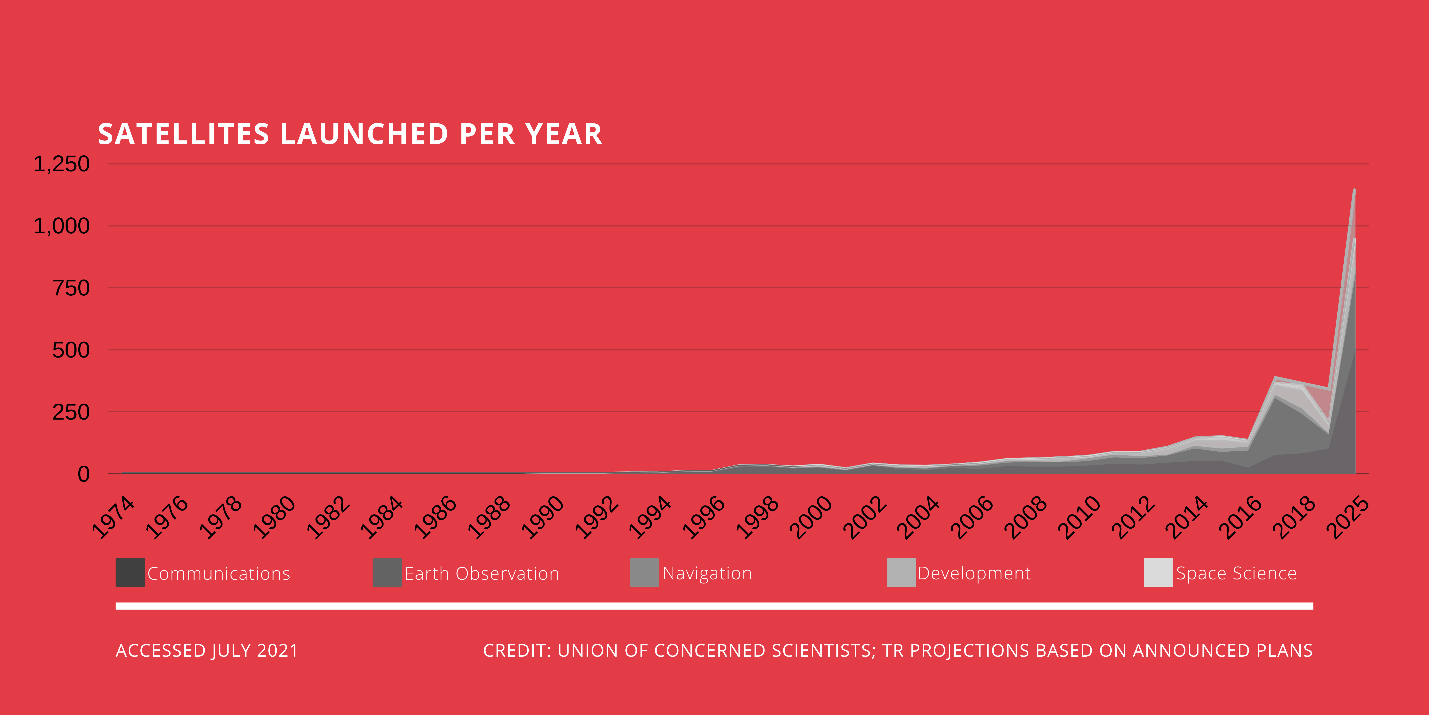10 Things to Know About Space “Junk”
With so many recent missions to put objects in our skies, it’s critical to understand how stakeholders address space debris concerns. More collisions will occur without shared protocols or a standard set of rules for active or inactive objects in space. Who should lead the charge to create and coordinate international laws for our skies?
Share
Read Next
-
In 1957, there was one satellite in space, Sputnik. Today, nearly 30,000 objects circle our skies.
-
Following the initial satellite launch, the Department of Defense established a network of radars and telescopes to observe orbiting satellites. In the following decade, the DoD also began tracking space objects and ballistic missiles that could target the US. The technology has been evolving since then to meet NASA and the DoD’s needs.
-
Tangential to the DoD’s Space Surveillance Network, Astrodynamacist Dr. Moriba Jah established a way to track objects in low earth orbit (LEO) and found vast amounts of debris in our skies. Today, he estimates 2,000 inactive rockets are floating around in space with no plan for reentry or obliteration.
-
The low earth orbit satellite market is experiencing rapid growth in the US and abroad. Private companies are sending constellations consisting of thousands of LEO satellites into space with government support, used for telecommunication, imaging, internet connections, and other purposes.
-
Particularly for insurers, this level of debris makes it challenging to underwrite collision coverage for LEO satellites. However, this concern is speculative as likely only 11 spacecraft collisions have resulted in partial or total failure, according to Seradata, a satellite database and space market analysis system.
-
Collisions do cause serious damage. For example, in 2009, a defunct Russian satellite and US communications satellite collided, leaving a cloud of debris in space and questions about how space should be governed.
-
Astronomers have raised concerns that satellites and debris obstruct their view of the night sky and make it challenging to observe distant galaxies.
-
Some private companies have launched initiatives to clean up the mess in space. Researchers have been exploring several ways to capture space debris – from harpoons to nets to magnetic fields.
-
Because orbiting objects and debris move around the entire globe, not just the country they’re maintained by, cooperation between nations is essential. International bodies must be ready to tackle the growing hazards in our skies.

Support Research Like This
With your support, BPC can continue to fund important research like this by combining the best ideas from both parties to promote health, security, and opportunity for all Americans.
Give NowRelated Articles
Join Our Mailing List
BPC drives principled and politically viable policy solutions through the power of rigorous analysis, painstaking negotiation, and aggressive advocacy.